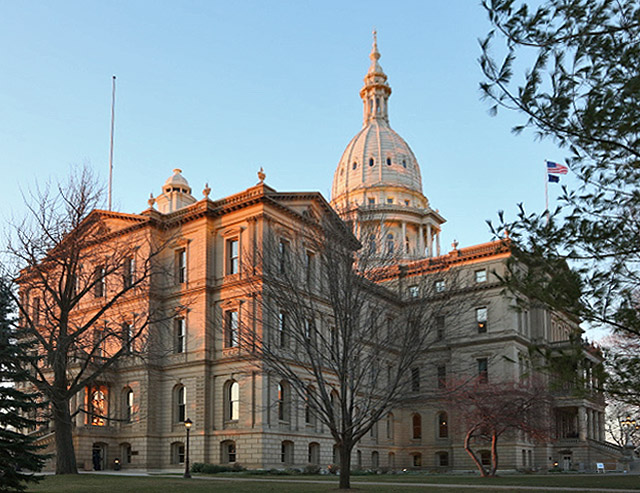A nonpartisan issue that’s about fairness over politics

Yesterday, Democrats in the Michigan State House introduced a Joint Resolution that would significantly reform the redistricting process that happens every decade after the national Census. In contrast to the current process where the political party that is in control creates districts that favor their candidates and makes it harder for the opposition party to win seats, the new process would be conducted by a bipartisan commission, would be far more transparent, would allow input from any Michigan citizen and, perhaps most importantly, would prohibit the type of gerrymandering that currently plagues our state.
House Joint Resolution I was introduced by Representative Jim Townsend and co-sponsored by Representatives Jeff Irwin, Phil Cavanagh, Dian Slavens, Andy Schor, Marilyn Lane, and Sean McCann. The resolution would amend sections 2, 3, and 6 of article IV of the state constitution of 1963 and, if passed by at a least two-thirds majority in both the House and the Senate, would put a proposal on the ballot for Michigan voters to consider. This process does not involve the Governor of the state.
The new commission would consist of nine members:
- One member selected by the Speaker of the House
- One member selected by the Minority Leader of the House
- One member selected by the Majority Leader of the Senate
- One member selected by the Minority Leader of the Senate
- Five members selected by the Auditor General
All commissioners would be required to be a registered voter in Michigan. Individuals would NOT be allowed to serve on commission if they:
- Have been appointed to or elected to any public office
- Have been employed by a political party or a political party caucus in the immediately preceding 5-year period
- Have received compensation as a registred lobbyist in the immediately preceding 5-year period
- Are employed by an organization from which members of the commission are prohibited from receiving gifts or loans
- Have entered into a contract with the State of Michigan or are employed by a person who has entered into such a contract
Commissioners would not be permitted to solicit or accept gifts or loans from registered lobbyists, a union, a business registered with the State of Michigan, a political action committee, a nonprofit organization or a 501(c) or a 527 organization.
Members of the public would be allowed to submit redistricting plans and all of the business that the commission performs would be required to be in compliance with the Open Meetings Act. Additionally, all of their work would be subject to the Freedom of Information Act.
Finally, and this is the piece that makes me the most happy, there are very strict rules about how legislative and congressional districts can be drawn. No longer will there be, for example, islands of one district in the middle of another one simply to benefit a single political party. The resolution requires that districts be “areas of convenient territory contiguous by land”. Areas “that meet only a points of adjoining corners are not” considered “contiguous”.
Bipartisan. Independent. Transparent. Open. This proposal has all of the hallmarks of a true democracy and a legitimate redistricting process. While it will chap the butts of Republicans who have been so shrewd in their redistricting over the past 20 years, they will have a very hard time defending a vote against this resolution and the people of Michigan would very likely support it as a ballot proposal as well.
This incredibly important resolution is now in the Elections and Ethics Committee. We’ll keep a very close eye on its progress.
[Capitol photo credit: Anne C. Savage, special to Eclectablog]



